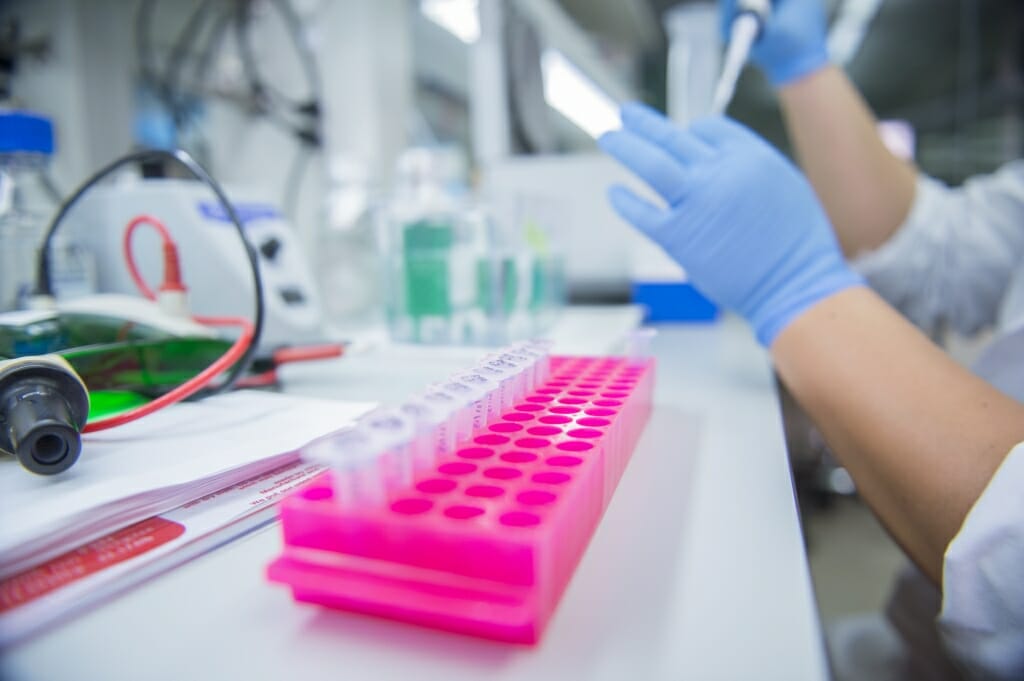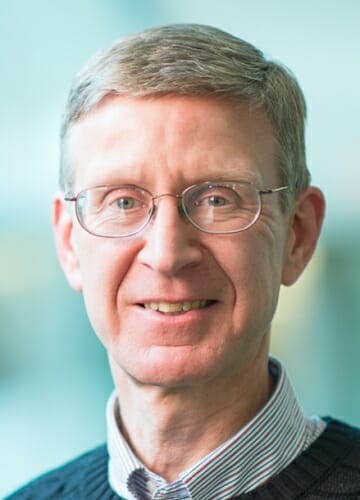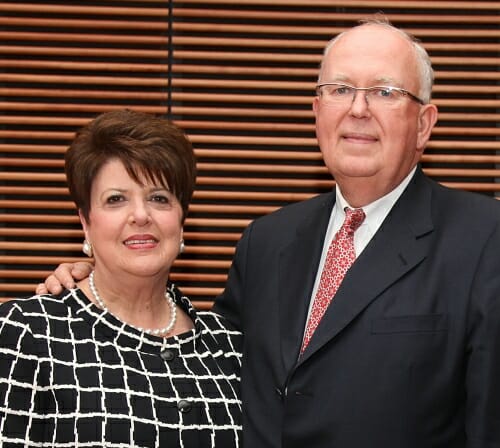Morgridge Institute announces Rowe Center for Research in Virology

A Morgridge Institute virologist prepares to analyze a sample of viral proteins. Photo: David Nevala
The Morgridge Institute for Research is launching the John W. and Jeanne M. Rowe Center for Research in Virology, a research effort to understand and fight deadly viruses.
The center builds upon the virology research at the Morgridge Institute led by Paul Ahlquist, the John W. and Jeanne M. Rowe Chair in Virology, and also comprises two additional Morgridge investigators and University of Wisconsin–Madison faculty, including Anthony Gitter, who specializes in computational biology.
The Rowe Center will work to understand the big-picture questions of how viruses function and interact with their hosts. In the center, the Ahlquist Lab will seek to understand and control positive-strand RNA viruses — a large group that includes Zika, SARS, MERS and many more viruses — as well as HIV and cancer-causing papillomaviruses. The research will be advanced by the Gitter Lab, which is developing approaches to unravel biological networks in areas such as viral replication and virus-induced cancers.
One of the goals of the Rowe Center is to develop broad-spectrum antivirals, which are drugs or vaccines to target entire families of viruses. There are hundreds of viruses that threaten human health, but today these are almost exclusively combated by targeting each individual strain, rather than by finding common weaknesses.
The center is made possible by John and Jeanne Rowe, who have provided sustainable, flexible support to grow a robust virology research program in partnership with scientists and students at UW–Madison.
“Their flexible support is a launching pad enabling us to do the critical work of moving into the new directions opened by our discoveries — work that is otherwise very hard to pursue but represents the essence of science. Science is about what we don’t know,” says Ahlquist, also a Howard Hughes Medical Institute (HHMI) investigator and professor of oncology and molecular virology at UW–Madison.
John Rowe served on the Morgridge Board of Trustees and as chair of the WARF Board of Trustees, and together he and Jeanne supported the humanities and education at the grade school, high school and university levels. They have come to see biomedical research, and virology, as an area where their philanthropic support can change lives and help people.
“All of the work that the wonderful scientists are doing in Paul’s group could really save a huge part of humanity,” says Jeanne Rowe. “Their work reaches out to so many people — and can help so many more.”
John Rowe, a graduate of the UW–Madison Department of History and the Law School, says their commitment to the Morgridge Institute comes from a belief in the possibility of science.
“Everybody likes to think there’s a big tension between science and faith. Not so,” he says. “Morgridge is a place where you invest because you believe that really smart people may come up with solutions that are of a vast use to humankind. It’s a belief that people of this quality will yield real results. It’s investing in the long game.”
Brad Schwartz, Morgridge CEO, says the Rowes’ gift is accelerating virology research at the institute and across UW–Madison. “Along the way, we are likely to learn things that have other benefits we can’t even predict,” says Schwartz.
Using seed investments from the center and partnering with the university, the Morgridge Institute will soon launch a search for a fourth new virology faculty investigator specializing in cryo-electron microscopy (cryo-EM). The position builds on a major initiative to create a new campus cryo-EM facility at the Department of Biochemistry through a partnership with Morgridge, the UW School of Medicine and Public Health, the vice chancellor for research and graduate education, and the UW Carbone Cancer Center. The partnership will enable an immense range of multidisciplinary, multi-investigator, transformative bioscience.


